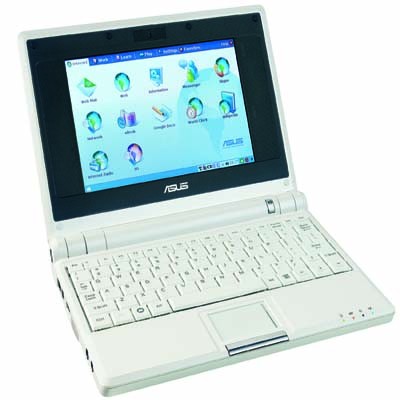- You really need a low-powered device, something that can be powered by hand or via solar cells. This is because often in Africa the electricity isn't often reliable. Realistically a person could provide up to 466 Watts, so 15 minutes worth of effort can power a 50 Watt computer/display for up to 2.33 hours.
- You need a system which can survive extreme conditions. That's another reason why it needs to be low-powered, because low-power means cool.
- You need a system which uses pretty much off-the-shelf components: standard RAM, pretty much standard HDs.
- You need a system which is low maintenance. This pretty much rules out sending old second-hand PCs. There's 2 reasons for this: replacement parts are hard to find and computing expertise is hard to find.
- You need a system which has conventional interfaces: VGA, USB.
- You need a system which is very cheap. The $100 laptop is currently at roughly $200 which is realistic to donate in 10s of units (£1000).
- You need a system which is based on open source software, e.g Linux.

Research machines are currently selling them for £169 each for the 2Gb version. However, they are for educational use only.
Another alternative is the FitPC.

Assuming we have to pay the full whack of $285 (£150) this means we can put together a cheap developing country PC for around £260 (£85 lcd display, £150 machine, £10 keyboard/ mouse, £20 Hand crank PSU).
However we can probably cut this down somewhat. If we sell it through a charity on a non-profit basis we can probably do it for half the price: $143 (£72) and then get the rest of it ex-vat, we get: £72+£98 = £170 for the machines themselves (we'd then have to transport them).
No comments:
Post a Comment